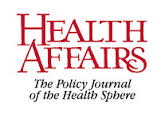Post-Mortem on the Medicaid Primary Care Fee Bump
The Affordable Care Act required state Medicaid programs to raise their fees for primary care services to the same level as Medicare rates, with the federal government shouldering the full cost of the difference. The rationale for the increase was that with millions of additional Americans expected to enroll in Medicaid in the coming years, a rate increase would encourage more primary care physicians to serve Medicaid patients because historically, many choose not to do so because of what they believe to be inadequate payments.
That two-year Medicaid primary care fee bump ended on December 31, 2014. Sixteen states and the District of Columbia felt the increase was beneficial enough to extend it using their own resources. Pennsylvania is not among the states that continued paying the enhanced rates.
The question of whether the fee increase accomplished its objective and is worth re-establishing remains unanswered. The brief nature of the experiment – only two years – and the delays many states experienced before they started paying the enhanced rates left little time for meaningful research. One quantitative analysis suggests the rate increase helped, there have been several more qualitative approaches to research, and some studies remain under way.
 Because they care for so many more Medicaid patients than the typical hospital, the adequacy of Medicaid payments has long been of special concern to Pennsylvania safety-net hospitals.
Because they care for so many more Medicaid patients than the typical hospital, the adequacy of Medicaid payments has long been of special concern to Pennsylvania safety-net hospitals.
For a closer look at the Affordable Care Act’s Medicaid primary care fee bump, how it worked, its impact, and its future, see the new health policy brief “Medicaid Primary Care Parity” here, on the web site of the journal Health Affairs.






